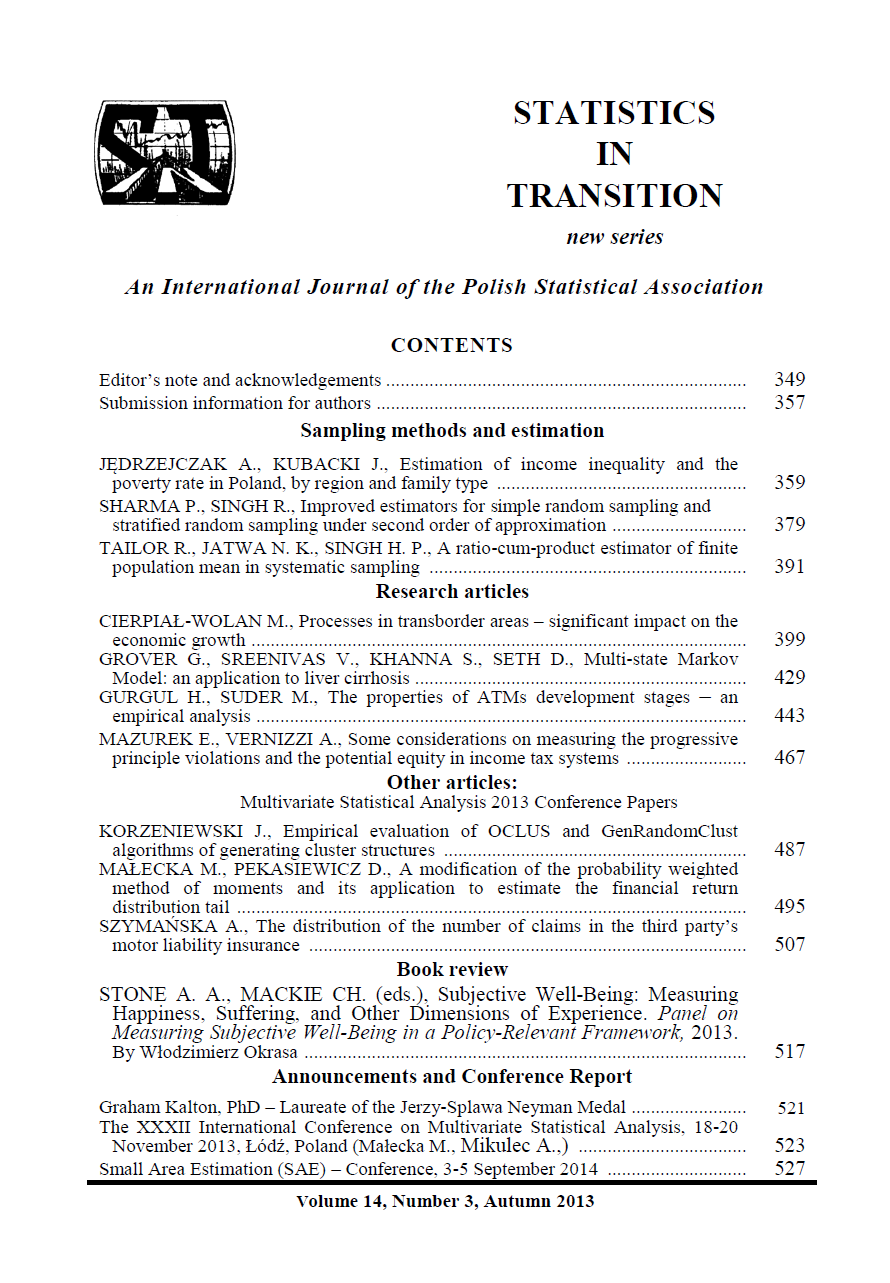ARTICLE
REFERENCES
DE SMEDT, M., (2014). Measuring Progress, GDP and Beyond Looking at Horizon 2020. Web-COSI Kick-off Meeting, Rome, 9 January.
OECD, (2013). Guidelines On Measuring Subjective Well-Being. OECD, Paris.
OKRASA, W., (2013). Spatial aspects of community well-being. Analyzing contextual and individual sources of variation using multilevel modeling. Presentation at the 59 World Statistics Congress, Hong Kong, August 24–30.
Panel on Measuring Subjective Well-Being in a Policy-Relevant Framework, (2013). The Subjective Well-Being Module of the American Time Use Survey: Assessment for Its Continuation. Committee on National Statistics; Division of Behavioral and Social Sciences and Education; National Research Council.
Project Report to the Scottish Executive, (2003). Community Well-Being. An Exploration of Themes and Issues. Scottish Executive. Edinburgh.
STEMEROFF, M., RICHARDSON, D., T., WLODARCZYK, (2009). Context and Application of Community Well-Being. NWMO SR-2009-04. AECOM Canada Ltd.
STEUER, N., MARKS, N., (2007). Local Well-Being: Can we measure it? http://www.communities.gov.uk/publications/localgovernment/nationalindicat orsupdate
